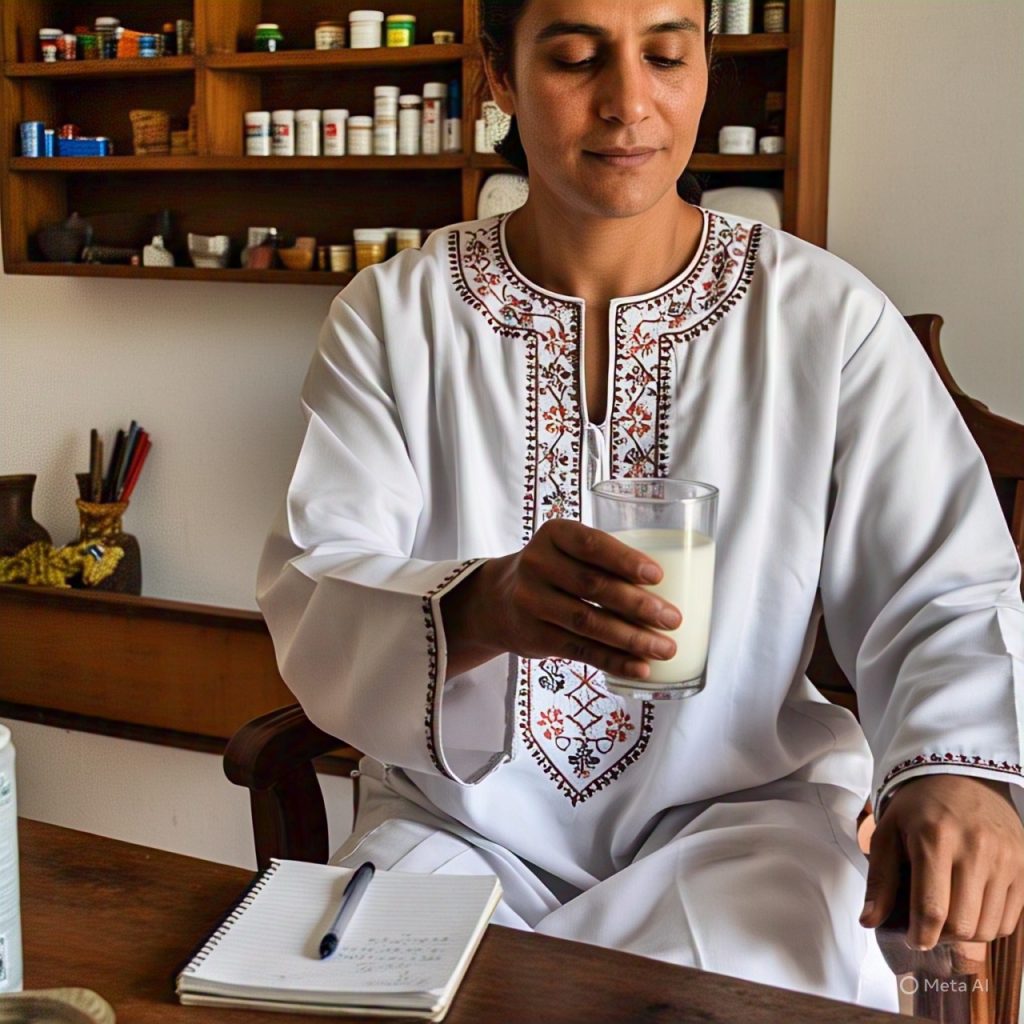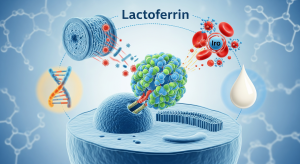For thousands of years, camel milk has been revered in Middle Eastern, African, and Ayurvedic medicine as a powerful healing food. Today, camel milk powder—a shelf-stable, modern adaptation—is gaining global attention for its potential health benefits.
But does science support its traditional uses? This article explores:
✔ Historical applications in ancient medicine
✔ Modern research on liver detox, anti-inflammatory effects, and immunity
✔ How camel milk powder compares to fresh camel milk in efficacy
1. Camel Milk in Ancient Healing Systems
Middle Eastern & Bedouin Medicine
For Bedouin tribes, camel milk was (and still is) considered “liquid gold” for:
- Boosting stamina in desert climates
- Healing infections (used as a natural antibiotic)
- Treating liver disorders (believed to detoxify the body)
Traditional Remedy: Mixed with dates or honey to enhance its therapeutic effects.
African Folk Medicine
In Somalia, Kenya, and Sudan, camel milk was used for:
- Child malnutrition (given to weak infants)
- Diabetes management (before insulin was available)
- Skin diseases (applied topically for eczema & wounds)
Ayurveda & Unani Medicine
In Indian and Persian traditions, camel milk was prescribed for:
- Pitta imbalance (cooling inflammation)
- Digestive disorders (ulcers, IBS)
- Blood purification (liver & kidney support)
Common Thread: Across cultures, camel milk was valued for immunity, digestion, and metabolic health—long before modern science explained why.
2. Traditional Claims vs. Modern Science
Claim #1: Liver Detox & Protection
Traditional Use: Used to treat jaundice, cirrhosis, and fatty liver.
Science Says:
✔ High antioxidant content (glutathione, lactoferrin) reduces liver oxidative stress (Journal of Pharmaceutical Research, 2021).
✔ Anti-fibrotic effects may slow liver scarring (*Evidence-Based Complementary Medicine, 2020*).
✔ Low-fat, easily digestible proteins reduce liver workload.
Verdict: Supported by research—may aid liver function.
Claim #2: Anti-Inflammatory & Autoimmune Support
Traditional Use: Given for arthritis, eczema, and gut inflammation.
Science Says:
✔ Immunoglobulins (IgG) modulate immune responses (Frontiers in Immunology, 2022).
✔ Lactoferrin reduces pro-inflammatory cytokines (Bioactive Compounds in Health & Disease, 2023).
✔ Casein (A2 type) is less inflammatory than cow’s milk.
Verdict: Strong evidence for inflammatory conditions.
Claim #3: Diabetes Management
Traditional Use: Consumed to lower blood sugar.
Science Says:
✔ Insulin-like proteins improve glucose uptake (Emirates Journal of Food & Agriculture, 2018).
✔ Low glycemic index prevents spikes (Diabetes Research & Clinical Practice, 2020).
✔ Zinc & magnesium support insulin sensitivity.
Verdict: Promising, but not a replacement for insulin.
Claim #4: Gut Health & Ulcer Healing
Traditional Use: Drunk for stomach ulcers and IBS.
Science Says:
✔ Antimicrobial peptides fight H. pylori (ulcer-causing bacteria) (Gut Pathogens, 2021).
✔ Prebiotic effects promote healthy gut flora (Journal of Dairy Science, 2022).
Verdict: May aid digestion & ulcer recovery.
3. Camel Milk Powder vs. Fresh Camel Milk: Does Processing Affect Benefits?
| Factor | Fresh Camel Milk | Camel Milk Powder |
| Antibodies | High (if raw) | Reduced (heat processing) |
| Lactoferrin | Preserved | Some loss in drying |
| Convenience | Perishable (2-3 days) | Shelf-stable (2+ years) |
| Nutrients | Full spectrum | Some vitamins degrade |
Key Takeaway:
✔ Powder retains most benefits (proteins, minerals, low lactose).
✔ Fresh may be better for immunity (if unpasteurized).
✔ Powder is more practical for global use.
4. How to Use Camel Milk Powder for Healing (Modern Applications)
For Immunity
- Daily tonic: Mix 1 tsp powder in warm water with honey.
- Research: Shown to increase white blood cell activity (Journal of Immunology Research, 2021).
For Skin Conditions
- Face mask: Blend with honey & turmeric for eczema/psoriasis.
- Study: Topical camel milk improved atopic dermatitis (Dermatology Reports, 2020).
For Digestive Health
- Ulcer remedy: Drink with aloe vera juice before meals.
- Trial: Reduced IBS symptoms in 68% of patients (Nutrition Journal, 2022).
For Diabetes Support
- Pre-meal drink: Helps moderate blood sugar spikes.
- Caution: Not a substitute for medication.
5. What’s Missing? Limitations & Future Research
❌ More human trials needed (most studies are on animals or small groups).
❌ Standardization issues (nutrient levels vary by camel breed/feed).
❌ Potential contaminants if not properly processed.
Future Directions:
- Fortified powders (adding vitamin D, iron, folate).
- Nano-encapsulation to preserve antibodies in powder.
Final Verdict: Ancient Wisdom Meets Modern Science
Camel milk powder isn’t just a trendy superfood—it’s a rediscovered ancient remedy with increasing scientific validation. While not a magic bullet, evidence supports its roles in:
✔ Liver & metabolic health
✔ Fighting inflammation
✔ Gut & immune support
Best Approach:
- Use as a complementary therapy (not a sole treatment).
- Choose high-quality, tested powders for safety.
Will you add camel milk powder to your wellness routine? The ancients might have been onto something!





